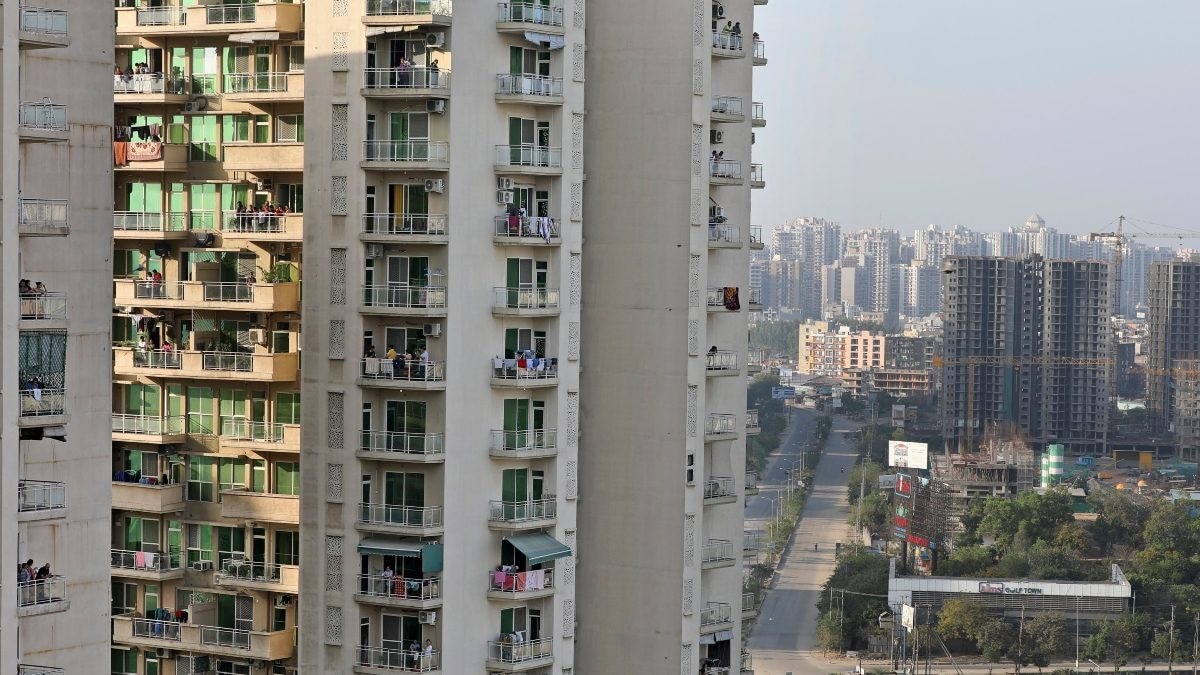5 Sustainable Practices That Elevate Property Marketability and Investor Appeal

[ad_1]
Across industries including the realty sector, sustainability has emerged as an exigent issue because of climate change, environmental degradation, and population explosion in India. As the real estate sector contributes significantly to national emissions—estimated at more than 22%—the incorporation of sustainable practices isn’t merely beneficial but essential for survival and competitive advantage.
The urgency is underscored by the broader context of the Paris Agreement’s goal to cap global temperature rise at 1.5 degrees Celsius and India’s pledge to achieve net-zero greenhouse gas emissions by 2070.
Also Read: Will Indian Real Estate Sector Fulfill The Promise Of Viksit Bharat?
Furthermore, environmental, social, and governance (ESG) criteria are becoming critical factors in investment decisions, reflecting a shift towards more ethical and environmentally conscious investing. The real estate market’s response has been to steadily integrate ESG goals into business strategies, enhancing both market value and investor appeal.
Therefore, several real estate players are adopting the following sustainable practices to support the development of green buildings and sustainable urban planning in India.
1. Green Certification
The saleability of real estate properties is being influenced by green building rating systems such as Leadership in Energy and Environmental Design (LEED), Green Rating for Integrated Habitat Assessment (GRIHA), and WELL. Properties with these certifications are not just buildings; they are benchmarks of sustainability that promise reduced operational costs and optimal living environments. A joint report by KPMG and Colliers states that green buildings can lower emissions by 35% and maintenance costs by 20%.
2. Eco-friendly Building Materials and Green Spaces
Opting for non-toxic, recycled, or sustainably sourced building materials resonates well with environmentally aware consumers. Materials such as bamboo flooring, recycled steel, or low-VOC paints not only lessen the adverse ecological impact during the construction phase but also contribute to healthier indoor air quality, a highly valued feature in the luxury residential segment.
Developers should also keep an eye on the development and use of new bio-based construction materials with low carbon footprints, such as mycelium and hemp. In addition, integrating biophilic designs, which involve creating strong connections between nature and built environments through landscaped gardens, internal courtyards, and vertical greening, is particularly apt in urban areas where green space is often limited.
3. Energy Efficiency and Renewable Energy Integration
Energy-efficient design combined with renewable energy sources like solar panels are key differentiators in a property’s market valuation. Smart HVAC systems, cellulose insulation, and energy-efficient lighting are foundational to reducing carbon footprints and operational costs.
The International Finance Corporation’s (IFC) EDGE (Excellence in Design for Greater Efficiencies) system exemplifies these changes, providing a measurable plan of action for energy and water saving in buildings aimed at achieving global sustainability standards. Internationally, green energy credits, Green Tariffs, net metering, and virtual power purchase agreements (VPPAs) have been introduced under the Greenhouse Gas Protocol to promote renewable energy usage.
4. Water Conservation Systems
Water scarcity is a critical issue in many parts of India, making water conservation a notable feature in any sustainable residential property. Rainwater harvesting systems, water-efficient fixtures, and innovative wastewater treatment facilities that recycle water for landscaping and other non-potable uses are highly appealing to environmentally conscious buyers. Buildings incorporating these systems demonstrate foresight and responsibility, which are valued in the residential market segment.
5. AI-Based Smart Home Technologies
AI-powered technology that allows residents to manage their energy and water usage efficiently adds a layer of convenience and further boosts the sustainability of residential realty. Smart thermostats, automated lighting systems, energy auditing devices, and water leak detection systems are popular advancements that tech-savvy consumers prefer to minimise their environmental impact while enjoying modern comforts.
Adopting these practices is advantageous to all stakeholders as it not only future-proofs investments but also places properties at a premium in the competitive market, attracting discerning investors and residents alike.
Besides, it positions the Indian real estate sector as a future-ready global leader in sustainable practices. However, the most promising aspect of prioritising sustainability in real estate is inching closer towards achieving economic stability, environmental responsibility, and social well-being, the decisive factors in India’s growth trajectory.
-The author is the Founder & CEO, of Property First. Views expressed are personal.
Disclaimer: The views and investment tips by experts in this News18.com report are their own and not those of the website or its management. Readers are advised to check with certified experts before making any investment decisions.
[ad_2]
Source link




